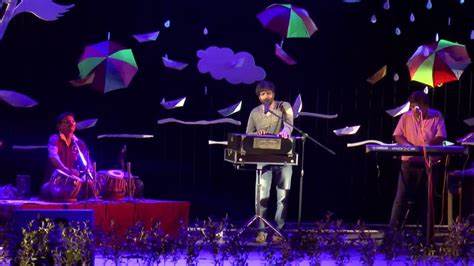“Śrīla Prabhupāda’s Kīrtana Standards,” installment 41

Concerning a saṅkīrtana party he wanted to form, Śrīla Prabhupāda wrote that the members should “perform Kirtana very rhythmically and melodiously.”1
Similarly he wrote:
Chanting Hare Krishna does not require any artificial artistic sense, but still, if the procedure is presented rhythmically, then the people may be attracted more by the transcendental music.2
But Śrīla Prabhupāda consistently emphasized “transcendental” more than “music.” In 1969, when the first devotees in London were moving around to different venues performing kīrtana, Śrīla Prabhupāda wrote to Mukunda:
As I have already written to you, we should not try to become a very popular musical party. Music is one of our items for chanting, but we are not musicians. We should always remember this fact. The best example is that we take advantage of the typewriting machine, but that does not mean we are professional typists.3
Around the same time, Śrīla Prabhupāda wrote to Tamal Krishna in Los Angeles:
I am pleased to note that there is interest in having our Sankirtana Party perform in various public engagements. The same thing is going on here [in London], and they have been invited to such places as Amsterdam and Germany. So if you can also do this, it is nice.
Devotion and purity, however, mattered more than music. Śrīla Prabhupāda continued:
But do not change our principles. Practicing is already done by kirtana. It is not required for us to become artists. Our main point is service to Krishna, not to please an audience. We shall not divert our attention too much to adjustment of musical sounds. People should not misunderstand that we are a band of musical artists. They must know that we are devotees of Krishna. Our devotional practice and purity shall be so strong that wherever we chant there will be immediately an impression in the audience for devotion to Krishna.4
Purity over professionalism
A few months later, when Śrīla Prabhupāda was in Los Angeles and Tamal Krishna in London, Śrīla Prabhupāda wrote to him again, reemphasizing and expanding upon the same points:
But one thing we must remember that we are not professional musicians or concert party. Our main business is to vibrate the Holy Name of Krishna everywhere so that the people will be benefited by hearing the transcendental sound. The musical training is not so important as it is to keep ourselves spiritually fit in spiritual strength, that we should not forget.
In both Los Angeles and London, money was needed. But Śrīla Prabhupāda continued:
If we are in spiritual strength, there will be no scarcity of money; and the spiritual strength is that each and every one of us must chant the sixteen rounds of beads and follow the rules and regulations with great adherence.5
Again, what mattered most was spiritual strength and pure devotional service. As Śrīla Prabhupāda had written to Jadurānī in 1967:
Krishna Kirtana is not for earning a livelihood. Krishna Kirtana is not meant for entertaining the public for demonstration of arts. It is dynamic service to the Lord. We do not therefore mind so much about the artistic presentation of Krishna Kirtana but we want to see how much a devotee is satisfying the Supreme Will.6
Commenting on the effulgent associates of Lord Caitanya and their melodious chanting, Śrīla Prabhupāda again emphasized purity over professionalism:
There are many professional chanters who can perform congregational chanting with various musical instruments in an artistic and musical way, but their chanting cannot be as attractive as the congregational chanting of pure devotees. If a devotee sticks strictly to the principles governing Vaiṣṇava behavior, his bodily luster will naturally be attractive, and his singing and chanting of the holy names of the Lord will be effective. People will appreciate such kirtana without hesitation. Even dramas about the pastimes of Lord Caitanya or Sri Krsna should be played by devotees. Such dramas will immediately interest an audience and be full of potency. The students of the International Society for Krishna Consciousness should note these two points and try to apply these principles in their spreading of the Lord’s glories.7
Notes:
1 Letter to Mukunda, 11 June 1968.
2 Letter to Upendra, 1 June 1968.
3 Letter to Mukunda, July 2, 1969.
4 Letter to Tamal Krishna, October 30, 1969.
5 Letter to Tamal Krishna, February 8, 1970.
6 Letter to Jadurani, December, 12, 1967.
7 Caitanya-caritāmṛta, Madhya-līlā 11.95, purport.

You must be logged in to post a comment.